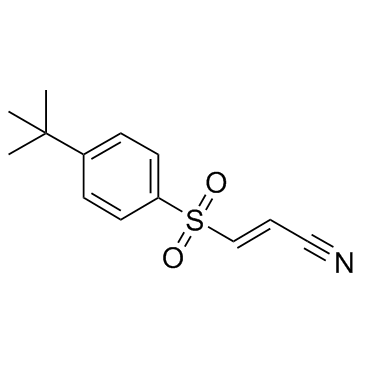Glycogen synthase kinase-3β, NF-κB signaling, and tumorigenesis of human osteosarcoma.
Qing-Lian Tang, Xian-Biao Xie, Jin Wang, Qiong Chen, An-Jia Han, Chang-Ye Zou, Jun-Qiang Yin, Da-Wei Liu, Yi Liang, Zhi-Qiang Zhao, Bi-Cheng Yong, Ru-Hua Zhang, Qi-Sheng Feng, Wu-Guo Deng, Xiao-Feng Zhu, Binhua P Zhou, Yi-Xin Zeng, Jing-Nan Shen, Tiebang Kang
Index: J. Natl. Cancer Inst. 104 , 749-63, (2012)
Full Text: HTML
Abstract
Glycogen synthase kinase-3β (GSK-3β), a serine/threonine protein kinase, may function as a tumor suppressor or an oncogene, depending on the tumor type. We sought to determine the biological function of GSK-3β in osteosarcoma, a rare pediatric cancer for which the identification of new therapeutic targets is urgent.We used cell viability assays, colony formation assays, and apoptosis assays to analyze the effects of altered GSK-3β expression in U2OS, MG63, SAOS2, U2OS/MTX300, and ZOS osteosarcoma cell lines. Nude mice (n = 5-8 mice per group) were injected with U2OS/MTX300, and ZOS cells to assess the role of GSK-3β in osteosarcoma growth in vivo and to evaluate the effects of inhibitors and/or anticancer drugs on tumor growth. We used an antibody array, polymerase chain reaction, western blotting, and a luciferase reporter assay to establish the effect of GSK-3β inhibition on the nuclear factor-κB (NF-κB) pathway. Immunochemistry was performed on primary tumor specimens from osteosarcoma patients (n = 74) to determine the relationship of GSK-3β activity with overall survival.Osteosarcoma cells with low levels of inactive p-Ser9-GSK-3β formed colonies in vitro and tumors in vivo more readily than cells with higher levels and cells in which GSK-3β had been silenced formed fewer colonies and smaller tumors than parental cells. Silencing or pharmacological inhibition of GSK-3β resulted in apoptosis of osteosarcoma cells. Inhibition of GSK-3β resulted in inhibition of the NF-κB pathway and reduction of NF-κB-mediated transcription. Combination treatments with GSK-3β inhibitors, NF-κB inhibitors, and chemotherapy drugs increased the effectiveness of chemotherapy drugs in vitro and in vivo. Patients whose osteosarcoma specimens had hyperactive GSK-3β, and nuclear NF-κB had a shorter median overall survival time (49.2 months) compared with patients whose tumors had inactive GSK-3β and NF-κB (109.2 months).GSK-3β activity may promote osteosarcoma tumor growth, and therapeutic targeting of the GSK-3β and/or NF-κB pathways may be an effective way to enhance the therapeutic activity of anticancer drugs against osteosarcoma.
Related Compounds
| Structure | Name/CAS No. | Molecular Formula | Articles |
|---|---|---|---|
 |
Bay 11-7085
CAS:196309-76-9 |
C13H15NO2S |
|
Infection of human amniotic and endothelial cells by Japanes...
2014-12-01 [Virology 471-473 , 29-37, (2015)] |
|
High-content positional biosensor screening assay for compou...
2014-09-01 [Assay Drug Dev. Technol. 12(7) , 395-418, (2014)] |
|
Vascular wall hypoxia promotes arterial thrombus formation v...
2015-07-01 [Thromb. Haemost. 114 , 158-72, (2015)] |
|
Aspirin-induced histone acetylation in endothelial cells enh...
2015-07-01 [Br. J. Pharmacol. 172 , 3548-64, (2015)] |
|
Two High Throughput Screen Assays for Measurement of TNF-α i...
2011-01-01 [Curr. Chem. Genomics 5 , 21-9, (2011)] |